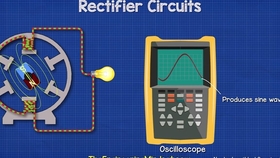"Do Solar Panels Attract Lightning: Unveiling the Truth and Mitigation Strategies"
Guide or Summary:Do Solar Panels Attract LightningSolar Panels and Lightning AttractionMitigation StrategiesDo Solar Panels Attract LightningThe question of……
Guide or Summary:
Do Solar Panels Attract Lightning
The question of whether solar panels attract lightning is one that has been on the minds of homeowners and solar energy enthusiasts alike. With the increasing adoption of solar power systems, many are concerned about the safety of these installations during stormy weather conditions. This article aims to shed light on the subject by exploring the science behind lightning attraction and the practical measures that can be taken to ensure the safety of solar panel systems.

Solar Panels and Lightning Attraction
Firstly, it is important to understand that solar panels themselves do not inherently attract lightning. Lightning is a natural electrical discharge that seeks the path of least resistance, which typically involves the Earth's surface. However, the presence of solar panels on a roof can alter the electrical properties of the structure, potentially affecting the distribution of lightning strikes.
One of the main concerns is that the metal components of solar panels, such as the frames and electrical connections, can serve as conductive pathways for lightning current. When lightning strikes a building, the electrical charge can travel through these conductive materials, potentially damaging the solar panel system.
Mitigation Strategies
To safeguard solar panel systems from lightning damage, several mitigation strategies can be employed. One effective approach is to install a lightning protection system (LPS) specifically designed for solar panel installations. These systems typically consist of lightning rods, conductive pathways, and grounding rods that divert lightning strikes away from the solar panels and safely dissipate the electrical charge into the ground.

Another important consideration is the placement of solar panels on the roof. It is generally recommended to avoid installing solar panels in areas that are prone to frequent lightning strikes. Additionally, ensuring that the roof is well-maintained and free from any potential conductive pathways can help minimize the risk of lightning damage.
In conclusion, while solar panels do not inherently attract lightning, the presence of metal components can affect the distribution of lightning strikes. By understanding the potential risks and implementing appropriate mitigation strategies, homeowners and solar energy enthusiasts can ensure the safety and longevity of their solar panel systems. With proper precautions, solar power can continue to be a reliable and sustainable energy source for years to come.